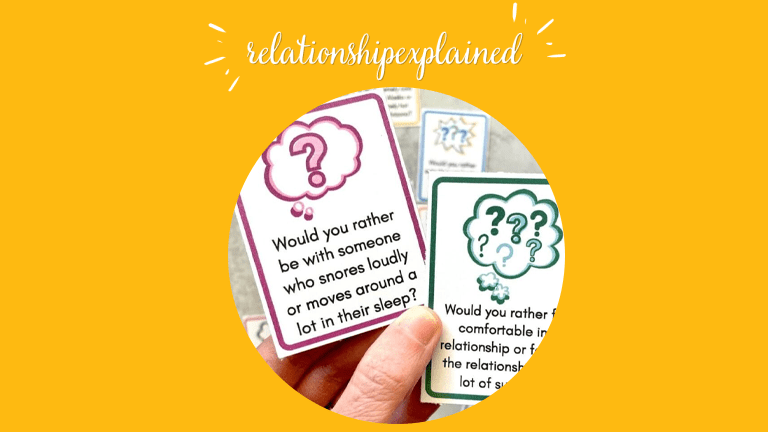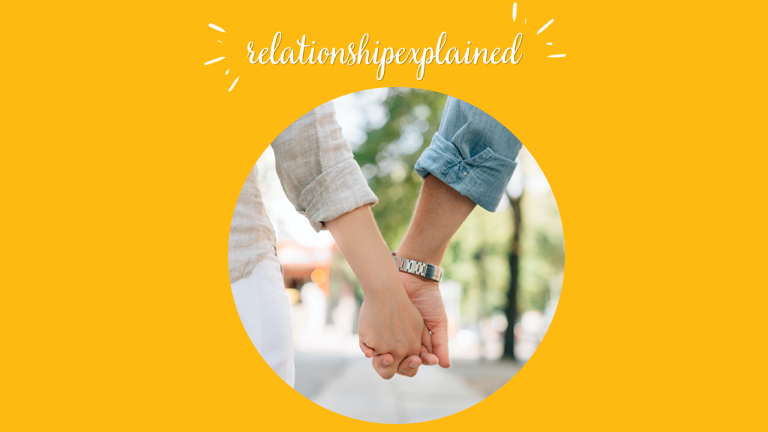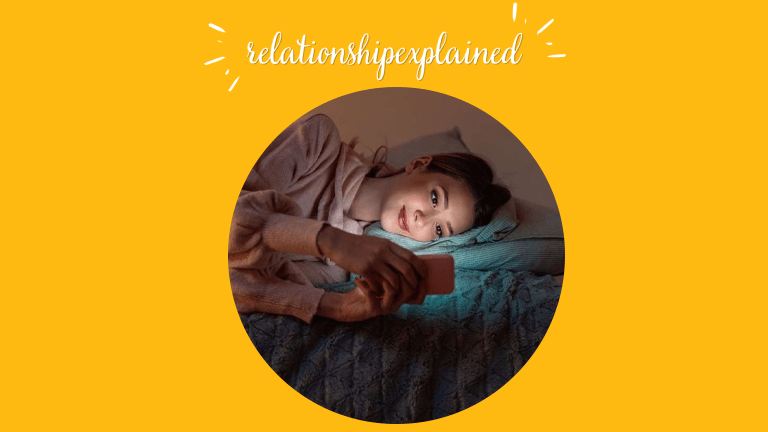Do Relationships Go Through Ups And Downs
It is inevitable for every relationship to go through ups and downs. While in a relationship, partners experience both joyful highs and challenging lows. However, navigating these fluctuations with open communication, support, and understanding can strengthen the bond between partners, leading to a healthier and more fulfilling connection.
In the intricate tapestry of human connections, relationships are like a wild rollercoaster ride that keeps us on our toes!
They’re definitely beautiful, but let’s face it - they can be pretty darn complicated too. From those electrifying highs of love to the downright challenging lows of conflict, it’s safe to say that relationships go through ups and downs, just like life itself.
In this article, we’re diving into the natural ebb and flow of relationships, figuring out why they take us on this crazy emotional journey. So, join us as we explore the rollercoaster ride of love and find out how navigating through the peaks and valleys can actually make our connections even stronger.
What Are The Reasons For A Relationship To Experience Ups And Downs?
Let’s be honest - most human beings crave love and connection in life. That is why human relationships exist in the first place. And within every relationship, there are some high points and there are some low points.
On that note, we all wish to sustain the highs in our relationships, but that’s not possible due to human nature. And when a relationship starts to falter, it shows some signs and symptoms. Below, we have discussed some of the biggest warning signs that you should keep an eye out for.
1. Poor Communication
In healthy relationships, open and honest communication is the lifeblood that keeps the connection strong. Partners talk and listen to each other, valuing the exchange of thoughts and feelings.
However, when communication becomes strained, and personal attacks are thrown into conversations, it’s a big warning sign that things are off-track. Moreover, when partners fear discussing challenges or avoid confrontations, it can lead to unresolved issues that continue to simmer beneath the surface. These negative patterns hinder the understanding between partners and can escalate conflicts, leading to a breakdown in the relationship’s foundation of trust and emotional support.
2. Lack Of Support
One of the defining characteristics of great relationships is the establishment of a solid support system between partners. In a healthy relationship, partners are there for each other through thick and thin, providing emotional, mental, and sometimes even physical support when needed.
When this essential pillar of support is missing, and partners deal with challenges on their own, it is a clear indication that the relationship is going through a rough patch. Feeling emotionally isolated can lead to a sense of detachment and loneliness, driving a wedge between partners and weakening the bond they share.
3. Constant Fighting
While all relationships have their ups and downs, constant and escalating fighting means that the ups are becoming increasingly scarce while the downs are dominating.
Frequent and intense arguments can leave partners emotionally drained and disillusioned with the relationship. More harmony is essential for a healthy relationship, where conflicts are resolved constructively and partners work together to find common ground and understanding.
4. Past Issues Resurface
In every long-term relationship, there are bound to be challenges that partners have faced in the past. While overcoming obstacles is a normal part of any relationship, if unresolved issues keep resurfacing repeatedly, it may indicate that the partners are not effectively dealing with their problems. Unresolved conflicts can create a cycle of negativity, leading to resentment and a lack of emotional closeness.
5. Unmet Expectations
Happy and fulfilling relationships involve understanding and accepting each other’s needs, desires, and boundaries. When expectations aren’t met, partners tend to control or focus on what’s lacking, and that eventually gives rise to relationship problems.
In many cases, unrealistic expectations can lead to constant disappointment and frustration in a relationship. It is important to remember that a perfect relationship doesn’t exist, and comparing the reality of a relationship to an idealized fantasy can lead to disappointment and dissatisfaction. As a result, it can make it difficult for you and your partner to appreciate the positive aspects of the connection.
6. Lack Of Fun And Passion
Spending quality time together, enjoying the little things, and having fun are essential elements of healthy relationships. Partners who share exciting experiences and maintain a sense of passion tend to feel more connected.
However, if you notice that the excitement and passion are dwindling, then it might be a sign of trouble in the relationship. Rediscovering shared interests, hobbies, or new activities can reignite the spark and bring you and your soul mate closer together.
7. Different Needs And Priorities
Partners in the healthiest relationships find a balance between their individual needs and the needs of the relationship as a whole. When priorities diverge significantly, it can lead to tension and unhappiness.
So, if you feel that your needs and priorities are diverging from those of your partner, then it is time to accept that the relationship is on a downward spiral. Understanding and respecting each other’s priorities are crucial for making compromises and building a sense of shared purpose.
8. Lack Of Respect
It is a well-known fact that mutual respect is the cornerstone of good relationships. Treating each other with kindness and consideration and valuing each other’s opinions and boundaries are vital components of a strong connection.
If partners disrespect each other or fail to appreciate each other’s efforts, the relationship can start to crumble. Disrespect erodes trust and can lead to emotional harm, making it difficult for partners to communicate openly and honestly.
9. Neglecting The Relationship
Relationships need care and attention to thrive. When partners stop putting in effort or take each other for granted, the relationship may suffer. Neglect can lead to emotional distance, reduced intimacy, and a general sense of dissatisfaction. Regularly investing time and energy into the relationship through meaningful gestures and expressions of love can rekindle the connection and strengthen the bond between partners.
10. Losing A Sense Of Wonder
In happy relationships, partners continue to discover and appreciate each other, fostering a sense of wonder and curiosity about their companion. If the sense of wonder is gone, it indicates a lack of emotional connection or a growing emotional distance between partners. And when both partners lose that curiosity, then the relationship will start showing signs of decay. Eventually, the situation will get worse, and the relationship will crumble completely.
How Can You Manage The Ups And Downs Of The Relationship?
There is no denying the fact that even the best relationships go through periods of turmoil. However, the key to building a happy and fulfilling relationship is to identify the underlying issues giving rise to such turmoil and address them.
That is why we have suggested some possible solutions to address any relationship challenges. So, if you feel like your relationship is in trouble, you can consider using these strategies.
1. Communicate Openly And Honestly
Be willing to talk about the problems you are facing without blame or judgment. Open communication allows both partners to express their feelings and perspectives, fostering understanding and empathy.
2. Break The Straight-Line Mentality
Recognize that relationships have ups and downs, and it’s normal to experience rough patches. Viewing the relationship as a continuous journey rather than a linear progression helps put challenges into perspective.
3. Seek Support From Friends And Family
Don’t hesitate to lean on your support system during difficult times. After all, you can’t expect to solve all problems on your own. By talking to trusted friends or family members, you can get valuable insights and comfort.
4. Seek Professional Advice If Needed
Contrary to what others might have you believe, there’s no shame in seeking professional help or relationship advice from experts. A counselor or therapist can provide valuable guidance and strategies to navigate through difficult times.
5. Practice Empathy And Understanding
Instead of being mad at your partner, put yourself in their shoes and try to understand their feelings and needs. It is common knowledge that empathy builds emotional connection and helps you navigate through challenges together.
6. Realize That Relationships Require Effort
Like any living thing, relationships need nurturing and care. Don’t take your partner or the relationship for granted; actively invest time and effort to make it thrive.
7. Manage Expectations
Understand that no relationship is perfect, and challenges will happen. Realistic expectations lead to greater acceptance and a more positive outlook on the relationship.
8. Be Present In The Moment
Instead of dwelling on past issues or worrying about the future, focus on the things that are happening in the present. Living in the moment can help you appreciate what you have and foster gratitude for your partner.
9. Assess Your Priorities And Values
Reflect on what truly matters in the relationship and in your life. Aligning your priorities and values can lead to a stronger bond and a sense of shared purpose.
10. Take Responsibility For Your Actions
Maintaining a relationship should not be the sole responsibility of one person. That is why you need to acknowledge your part in any conflicts or challenges. Taking responsibility shows maturity and a willingness to grow as a person and a partner.
11. Be Willing To Compromise
We admit that making compromises can affect your personal liberties and freedom. However, if you are too rigid about this aspect, your relationship will be difficult to salvage. You need to keep in mind that, in some cases, finding a middle ground is necessary to resolve conflicts. Be open to compromise on certain issues to promote harmony in the relationship.
12. Express Love And Appreciation
Expressing love and appreciation can go a long way in improving the relationship’s atmosphere. That’s why it is important to show your partner that you value and cherish them. You can do this through simple gestures like holding hands, sharing a kiss, hugging, and so on.
13. Consider The Example You Set
In a relationship, actions speak louder than words. Be a positive role model for the kind of relationship you want to have, as your behavior can influence your partner’s actions.
14. Spend Quality Time Together
If you feel that you are growing apart from each other, then make time for shared activities and experiences. Building positive memories can create a strong foundation for the relationship.
15. Manage Anger And Conflict
It is crucial that you address conflicts calmly and respectfully to prevent any conflict escalation. Avoid letting anger control your actions, as it can lead to hurtful behavior and further damage the relationship.
16. Focus On The Positives
Instead of dwelling on the negatives of your relationship, try to appreciate the good times and positive aspects that you have experienced. A focus on the positives can lead to increased happiness and satisfaction.
17. Take A Break From Each Other
Sometimes, taking a break from each other can be a valid option when the relationship is in trouble. A break allows both partners to have some space and time for self-reflection without the pressure of constant interaction. That way, when you get together eventually, you will be able to address the issues with more clarity.
18. Decide If It's Time To End The Relationship
If your relationship keeps getting worse every day and none of the above solutions seem to work, then you might need to consider ending the relationship for good. It’s not healthy to stay in a strenuous relationship, for it often leads to physical and mental health traumas. That said, this step should only be considered a last resort once you have exhausted all other options.
Final Words
When you connect with another person, then you need to be prepared for relationship ups and downs as well. There is no need to be afraid of them since they are an inevitable part of the ride that makes the whole experience worth it.
When faced with challenges, open communication, empathy, and support from friends and family can offer invaluable guidance. Nurturing the relationship, understanding each other’s needs, and managing expectations are crucial for its growth. Taking breaks for self-reflection and learning new ways to communicate can revive a struggling connection.
However, recognizing the signs when the relationship is no longer fulfilling is essential. Deciding to end the relationship, while difficult, can lead to personal growth and new opportunities. Ultimately, prioritizing well-being and fostering a healthy, fulfilling bond can pave the way to lasting love and happiness.













